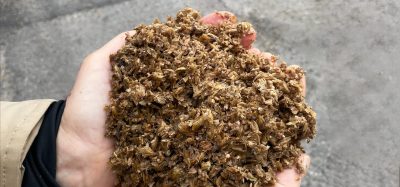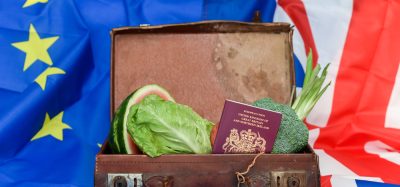Soft drinks industry hits back at aspartame claims
- Like
- Digg
- Del
- Tumblr
- VKontakte
- Buffer
- Love This
- Odnoklassniki
- Meneame
- Blogger
- Amazon
- Yahoo Mail
- Gmail
- AOL
- Newsvine
- HackerNews
- Evernote
- MySpace
- Mail.ru
- Viadeo
- Line
- Comments
- Yummly
- SMS
- Viber
- Telegram
- Subscribe
- Skype
- Facebook Messenger
- Kakao
- LiveJournal
- Yammer
- Edgar
- Fintel
- Mix
- Instapaper
- Copy Link
Posted: 20 November 2020 | Joshua Minchin (New Food) | No comments yet
New Food hears from the British Soft Drinks Association’s Director General, Gavin Partington, as he defends the use of aspartame following criticism from two food safety experts last week.


Just last week, food safety experts, Professor Erik Millstone and Dr Elisabeth Dawson, said aspartame, a popular artificial sweetener used in many low-calorie soft drinks, should be banned.
This has provoked quite the response from the soft drinks industry, which is adamant the sweetener is safe – a belief that is also shared by the European Food Safety Authority (EFSA).
The University of Sussex Business School released research recently which claims that the EFSA approved aspartame despite accepting 21 studies that showed it could pose a risk to consumers’ health. As such, Professor Millstone and Dr Dawson questioned the decision to approve the sweetener in the first place.
“It is incumbent on EFSA in the interests of transparency and protecting public health to provide a detailed breakdown of the studies, and references to the papers, which underpin the new information we have recently learned about their decision in 2013,” he said.
Low and no-calorie sweeteners (LNCS) are among the most thoroughly researched ingredients worldwide.
Gavin Partington, who is Director General at the British Soft Drinks Association (BSDA), has firmly rebuffed Professor Millstone’s calls for a ban on aspartame: “Professor Millstone is a committed critic of aspartame, despite the substantial body of scientific research that undermines his claims.
“According to all leading health authorities in the world, as well as Cancer Research UK and Diabetes UK, low- and no-calorie sweeteners (LNCS) are safe. A study conducted on behalf of the UK Food Standards Agency in 2015 found no negative health links related to the consumption of aspartame. In March 2017, the UK Government and Public Health England publicly endorsed the use of LNCS as a safe alternative to reduce sugar in food and drink and help people manage their weight.
“The facts speak for themselves – low and no-calorie sweeteners (LNCS) are among the most thoroughly researched ingredients worldwide and have been approved by all leading health authorities around the world. LNCS, including aspartame, enable food and drink producers to create low-calorie and/or low-sugar products whilst still maintaining the taste that consumers are looking for. Utilising LNCS, such as aspartame, our members have led the way in developing and promoting low- and no-calorie soft drinks, which accounted for 68.2 percent of category sales in 2019 [Global Data].”
The EFSA has also responded to Professor Millstone and Dr Dawson’s accusations that it disregarded studies that spoke against the safety of aspartame. In an open letter, George Kass and Federica Lodi of the authority said: “EFSA has performed an analysis of the distribution of ‘negative’ versus ‘positive’ studies on the toxicological properties of aspartame and their reliability.
“EFSA’s analysis took into consideration the limitations of the studies, the biological relevance of the observations reported and the reliability (overall or partial) and use of the evidence in the risk characterisation process.
“The outcome of EFSA’s analysis of the scientific studies clearly shows that the ANS Panel had considered over one third of the ‘negative’ studies as unreliable and over half of the ‘positive’ studies as reliable. Therefore, EFSA refutes the claim of bias in the assessment of ‘negative’ versus ‘positive’ studies.”
The International Sweeteners Association (ISA) echoed these views. A spokesperson told New Food: “The EFSA scientific opinion on aspartame, published in December 2013, concluded that aspartame is not a safety concern.
“This EFSA opinion represents the most comprehensive assessment of the aspartame safety database that has ever been undertaken and the EFSA conclusions are consistent with the opinion of regulatory authorities around the world that aspartame is safe.”
Related topics
Beverages, Flavours & colours, Health & Nutrition, Ingredients, Regulation & Legislation, retail
Related organisations
British Soft Drinks Association (BDSA), European Food Safety Authority (EFSA), The International Sweeteners Association (ISA), University of Sussex Business School
Related regions
Related people
Dr Elisabeth Dawson, Federica Lodi, Gavin Partington, George Kass, Professor Erik Millstone







